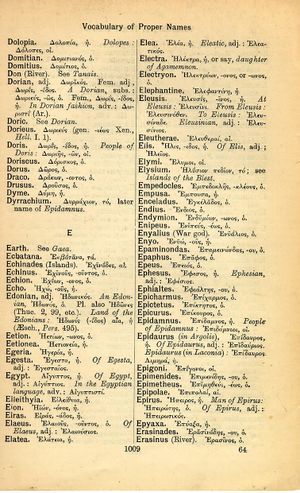Egeria
From LSJ
εἰ δὲ τύχῃ τις ἔρδων, μελίφρον' αἰτίαν ῥοαῖσι Μοισᾶν ἐνέβαλε → if someone is successful in his deeds, he casts a cause for sweet thoughts into the streams of the Muses
English > Greek (Woodhouse)
Ἠγερία, ἡ.
Latin > English (Lewis & Short)
Ēgĕrĭa: (Aeg-), ae, f., = Ἠγερία,
I a nymph or Camoena celebrated in Roman mythology, the wife and instructress of Numa, with two sacred groves and fountains, the one near Rome, opposite the Porta Capena, the other in the neighborhood of Aricia, Liv. 1, 19; 21; Val. Max. 1, 2, 1; Ov. F. 3, 154; 261 sq.; 4, 669; id. M. 15, 482 sq.; Verg. A. 7, 763; 775; Juv. 3, 12 sq.
Latin > French (Gaffiot 2016)
Ēgĕrĭa,¹³ æ, f., Égérie nymphe que Numa feignait de consulter] : Liv. 1, 19, 5 ; Virg. En. 7, 763.

